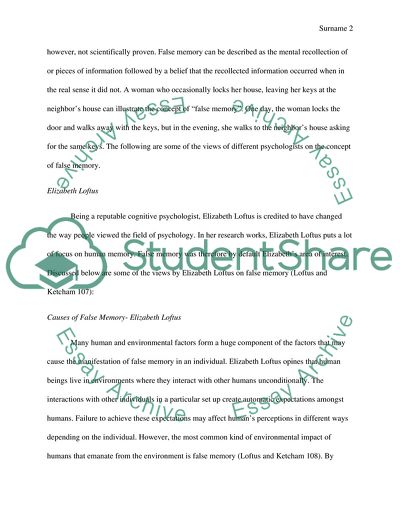Cite this document
(False Memory Essay Example | Topics and Well Written Essays - 1750 words - 2, n.d.)
False Memory Essay Example | Topics and Well Written Essays - 1750 words - 2. https://studentshare.org/psychology/1841869-cognitive-psychology
False Memory Essay Example | Topics and Well Written Essays - 1750 words - 2. https://studentshare.org/psychology/1841869-cognitive-psychology
(False Memory Essay Example | Topics and Well Written Essays - 1750 Words - 2)
False Memory Essay Example | Topics and Well Written Essays - 1750 Words - 2. https://studentshare.org/psychology/1841869-cognitive-psychology.
False Memory Essay Example | Topics and Well Written Essays - 1750 Words - 2. https://studentshare.org/psychology/1841869-cognitive-psychology.
“False Memory Essay Example | Topics and Well Written Essays - 1750 Words - 2”. https://studentshare.org/psychology/1841869-cognitive-psychology.


